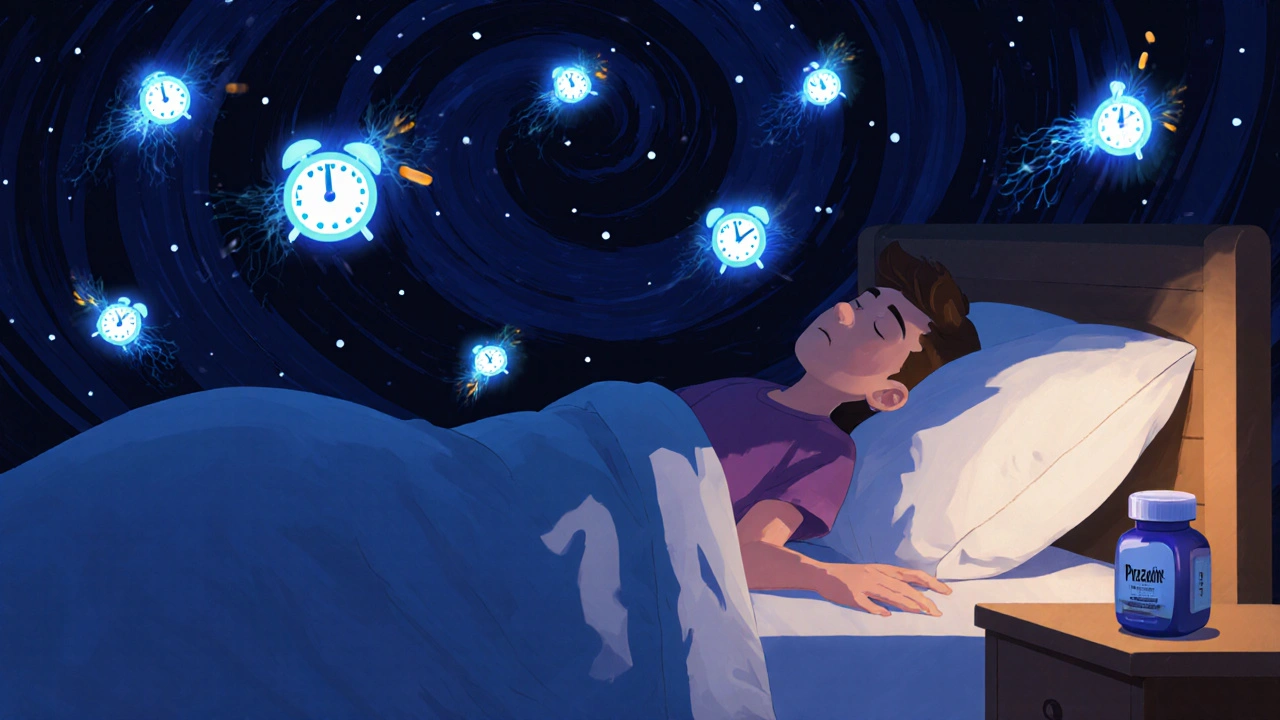Mirtazapine for Insomnia: What Works, What Doesn’t, and What to Know
When mirtazapine for insomnia, a tetracyclic antidepressant that increases serotonin and norepinephrine in the brain, often used off-label to help with sleep. Also known as Remeron, it’s not FDA-approved for sleep, but many doctors prescribe it because it makes people drowsy—fast. Unlike sleep meds like zolpidem or eszopiclone, mirtazapine doesn’t just knock you out. It helps you stay asleep longer and can improve sleep quality by reducing nighttime awakenings. That’s why it’s a go-to for people who struggle with both depression and insomnia, or those who’ve tried other sleep aids without lasting results.
What makes mirtazapine different is how it acts on histamine receptors. It blocks H1 receptors in the brain, which is the same mechanism some over-the-counter allergy pills use to cause drowsiness. That’s why people often feel sleepy within the first few doses, even before any mood improvement kicks in. It’s not a quick fix like a sleeping pill, but it’s less likely to cause dependence or tolerance over time. People with chronic insomnia linked to anxiety or low mood often find it more helpful than benzodiazepines or melatonin. It also doesn’t mess with REM sleep the way some other sedatives do, which means your brain gets the restorative sleep it needs.
But it’s not for everyone. If you’re overweight or have metabolic issues, mirtazapine might make things worse—it’s known to increase appetite and cause weight gain. Some people feel groggy the next day, especially when starting out. Others report dry mouth, dizziness, or weird dreams. It’s also not something you should stop suddenly. If you’ve been taking it for more than a few weeks, you’ll need to taper off under a doctor’s care to avoid withdrawal symptoms like nausea, anxiety, or rebound insomnia.
It’s worth noting that mirtazapine works best when insomnia is tied to something deeper—like depression, PTSD, or generalized anxiety. If your sleep problems are caused by caffeine, poor sleep hygiene, or sleep apnea, mirtazapine won’t fix the root issue. That’s why doctors often pair it with behavioral changes: keeping a consistent bedtime, avoiding screens before sleep, or cutting back on alcohol. It’s not a magic bullet, but for many, it’s the missing piece in a broken sleep routine.
People who’ve tried SSRIs like sertraline or fluoxetine and ended up more awake than asleep often turn to mirtazapine as a switch. It’s one of the few antidepressants that actually helps with sleep instead of hurting it. And unlike trazodone, another common off-label sleep aid, it doesn’t carry the same risk of priapism or heart rhythm issues. For older adults, it’s sometimes preferred because it’s gentler on the liver than some alternatives.
Below, you’ll find real-world comparisons, patient experiences, and clinical insights on how mirtazapine stacks up against other options—whether you’re looking for something stronger, safer, or more sustainable. You’ll see what works for people with anxiety-driven insomnia, what doesn’t help at all, and how to tell if it’s the right fit for you.

